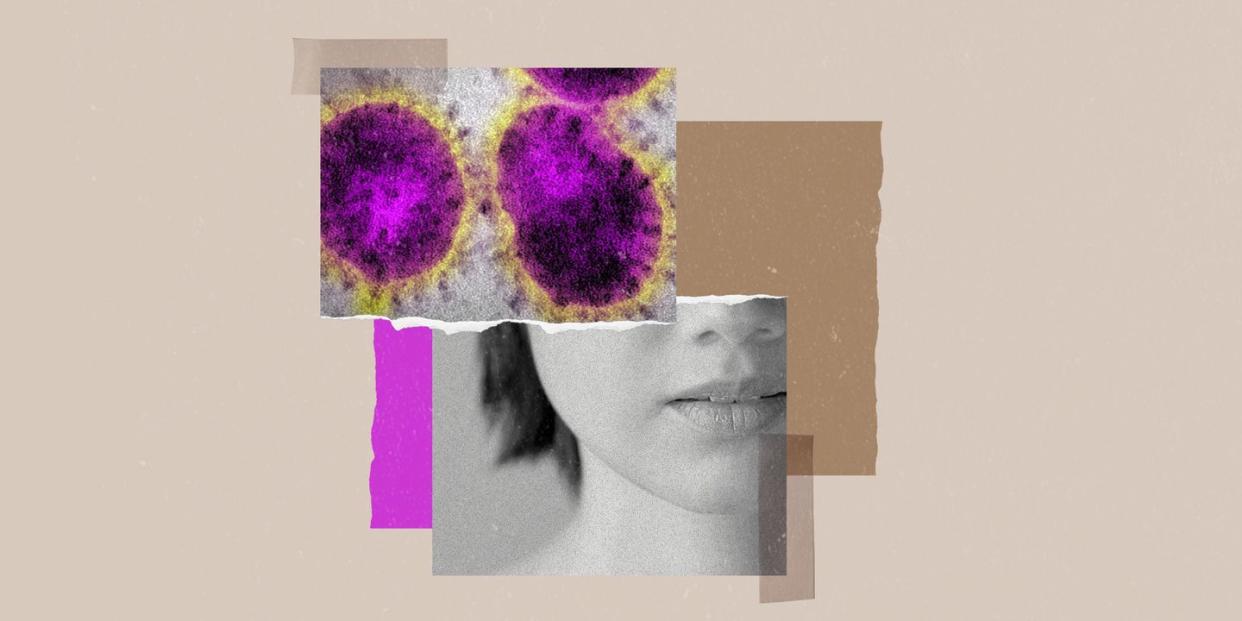For Asian Americans, Racism Is as Threatening as the Virus

“Chinese virus” flashed across my Instagram Live. I was in the middle of giving a free online writing class during this chaotic time of COVID-19 school closures when the two words made me freeze. What do I do? Do I stop the class? I was just talking about the surging xenophobia and racism in the wake of the coronavirus and how it has affected me as an Asian American creator. And as I opened up about this most vulnerable experience, I never expected to be blasted with “Chinese virus.”
My first instinct was to ignore. Decades of dealing with microaggressions ranging from “Can you actually put on eyeliner?” masked as a serious make-up question to “Are you really a person of color?” have unfortunately been weaved into the fabric of my “normal.” Growing up as the only Chinese girl in my predominantly white school, these microaggressions permeated my day-to-day. My go-to coping mechanism was to ignore them and move on. I was eager to be liked, to fit in. To seem like one of my white friends, who never had to deal with this. So I pretended I didn’t have to, either.
Until I grew up and felt the double whammy of shame—shame at having been on the receiving end of so many “casually racist” comments, and the shame at having let them go. Because here’s the thing—there is no such thing as casual racism, it’s just racism. It’s racist for ex-SNL hire Shane Gillis to casually use racial slurs against Asian Americans in his jokes. For Chinese restaurants started by white people to advertise that they are serving “clean Chinese food.” For fashion labels to air commercials making fun of Asian people eating spaghetti with chopsticks. For university professors to publicly blast international students for speaking Chinese in the student lounge, calling it so “impolite” and “disappointing.” On and on the list goes. And this was all before coronavirus.
Now, thanks to President Trump calling COVID-19 the “Chinese virus,” it’s open season on Asian Americans. In the San Fernando Valley, a 16 year old Asian American student was so brutally attacked by his classmates, who accused him of having the coronavirus, that he had to go to the emergency room. In New York City, an Asian American woman was punched and called “diseased.” Four members of an Asian family in Texas were stabbed while grocery shopping on March 15. The cases are so pervasive and horrific, they’ve prompted an online forum, where some 650 racist incidents were reported in just one week.
As Asian Americans, we are dealing with dueling fears—fear of the virus itself and fear of xenophobia, a pandemic just as scary as the virus. I have lost count of how many times I’ve been asked if I have the coronavirus. My dad gets messages from his friends asking if we should sleep with our car alarms under our pillows in case anyone tries to break into our house, asking when’s the safest time to take out the trash.
When I call up my white friends and tell them about it, the response I often get is, “Really? Well I don’t see it where I live.” Or, “Who even has time to be racist right now?” Like it’s a busy schedule that’s protecting us from hate crimes.
This fear hits even harder when you’re an Asian American creator. My debut young adult novel Parachutes is set to be released in May. It’s a novel about Asian American international students, aka "parachutes," who come to the U.S. to study at a private high school. Ironically, it’s about the microaggressions, xenophobia, and sexual misconduct they encounter here, which, unfortunately, have been on the rise during COVID-19 as people find it more acceptable to target and harass Asian international students. It’s a book that mirrors my own experience with sexual assault and discrimination.
There had been plans for a 10-city book tour, but like many authors, most of my events have been cancelled. I am fighting the daily fear that this incredible story that took me 17 years to find the courage to write will fall into the abyss of forgotten stories. I’m not alone in feeling this way, but what’s different for me is it’s tinged with a racial undercurrent that runs deep.
My mother, the other day, said to me, “Maybe it’s just not a good time for Asian Americans and our stories. People don’t seem to like us very much right now.”
When she said that, I cried. I cried for the 10 year old me who stood in front of the mirror with a banana peel draped over my hair, wishing I could be blonde. I cried for the 25 year old me who was told at a dinner party I couldn’t make it as a novelist in the U.S. because of the color of my skin—“Look around. How many Asian American authors do you see?”
But this time, I did not just take it. “No Mom,” I said to my mother. “Now, more than ever, the world needs our stories.”
And I kicked into high gear, launching a free online writing class for teens and other virtual events. My Asian American ancestors paid dearly so I could have this day, to tell my stories. And while it is scary to have to face racist comments online (which by the way, after I tweeted about what happened—because my days ignoring and pretending it didn’t happen are OVER, the user apologized), what’s even scarier is if we give up on our narratives. I refuse to be scared into silence. As Dani, one of the strong female protagonists in Parachutes says, “Our voice is our armor.” And I, for one, intend to use mine.
You Might Also Like

